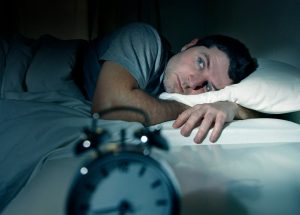
In this blog, the sleep doctors at eos sleep explain more about what sleep disorders are and how you can tell if you have one.
What is a sleep disorder?
A sleep disorder is a condition that affects your ability to sleep well on a regular basis. You may have trouble falling asleep, staying asleep, or have pauses in your breathing as you sleep, depending on the type of disorder you have. A sleep disorder not only affects your ability to get a good night’s sleep – it can also have a substantial impact on your overall health.
What are common types of sleep disorders?
The following are some of the most common sleep disorders:
- Sleep apnea – characterized by repeated pauses in breathing as you sleep
- Insomnia – difficulty falling asleep and staying asleep
- Restless legs syndrome – restlessness and an overwhelming urge to move your legs
- Narcolepsy – characterized by feeling sleepy without warning during the day
What are some common symptoms of sleep disorders?
Sleep disorders can sometimes cause symptoms that go beyond the obvious difficulty sleeping. Sleep apnea, for example, can cause the following symptoms:
- Excessive daytime sleepiness
- Chronic loud snoring
- Morning headaches
- Dry mouth in the morning
- A sore throat in the morning
- Memory and attention problems
- Irritability
In addition, sleep apnea can increase your risk of developing chronic health issues such as heart disease and type 2 diabetes.
How is a sleep disorder diagnosed?
Your symptoms, medical history, risk factors, and other information can point to the possibility of a sleep disorder. In order to confirm or rule out a diagnosis, however, a sleep study (also known as a polysomnogram) is needed.
This type of test can be conducted in a sleep lab or at home. It uses sensors to measure and record specific data about what happens to your body as you sleep. The type of information gathered can include the following:
- Breathing effort and rate
- Heart rate and rhythm
- Blood pressure
- Brainwaves
- Oxygen levels in your blood
- Eye movements
- Body movements
How can they be treated?
Sleep disorders can be treated in several different ways, depending on the type of disorder and its cause. Non-invasive methods are often the first type of treatments tried, and more invasive ones are recommended if these aren’t effective enough.
Treatments for sleep apnea include the following:
- CPAP – a continuous positive airway pressure machine, which delivers a steady stream of air via hoses and a mask in order to help keep your airway open
- Oral appliance therapy – a custom-made plastic mouthpiece-like device worn at night to gently coax the tongue and/or jaw forward to keep your airway open.
- Minimally invasive procedures – including balloon sinuplasty and the Pillar procedure
- Outpatient surgeries – including septoplasty and endoscopic sinus surgery
- Inpatient surgeries – including tonsillectomy and hyoid suspension
If you’re experiencing symptoms of a sleep disorder, make an appointment today with eos sleep. We’ll conduct any necessary testing, such as a sleep study, to confirm or rule out the presence of a sleep disorder. We’ll also recommend the least invasive treatment that will help you sleep well and improve your health and well-being.
